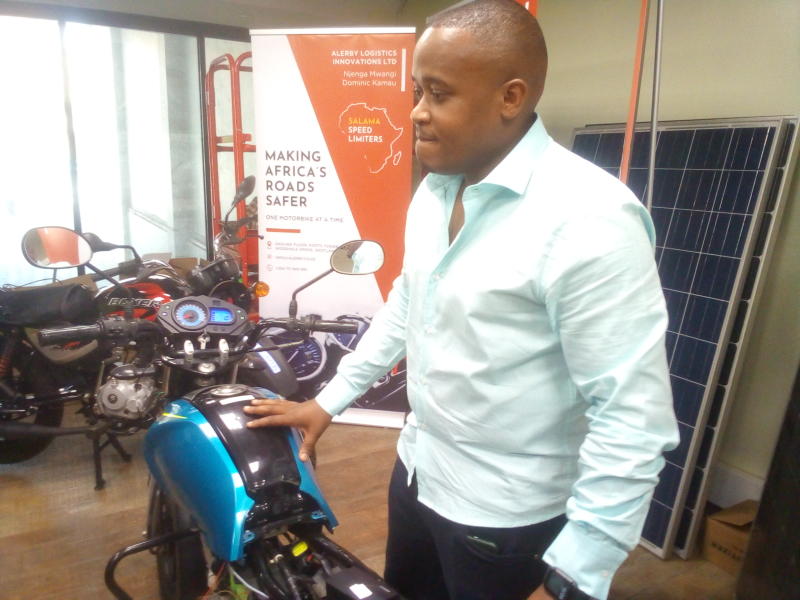×
The Standard e-Paper
Join Thousands Daily

Njenga Mwangi, the founder and CEO Alerby Logistics Innovation Ltd demonstrating how the speed limiter works. [Standard]
Sometime in 2014, Mr Njenga Mwangi was driving to Ishiara, Embu County.